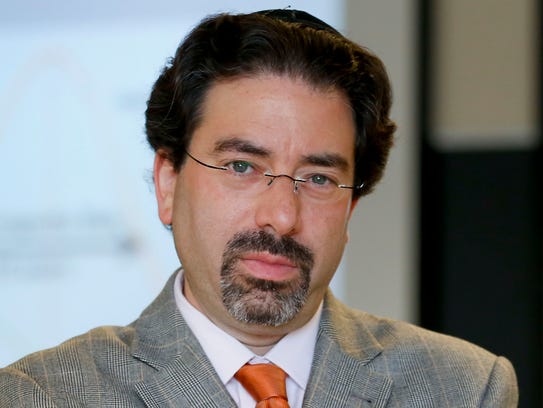Not scary if we invest heavily in our health and the health of our communities around us. We will, in fact, gain financially. . And that is the beautiful aspect of building a sustainable future. Our quality of life and chances of prospering grow with each step we take in building a cleaner, brighter future.

By contributing to your traditional 401(K) plan, you can save on taxes today and invest in your retirement at the same time. Wochit
Most people plan how much they’ll spend in retirement based on their chronological age.
But in the not-too-distant future, they might consider using something entirely different – their biological age.
Why so?
“A person’s true age doesn’t move in lockstep with calendar time,” according to Moshe Milevskya professor at York University and co-author of a just-posted research paper, Retirement Spending and Biological Age. “Instead, biological age increases at a stochastic nonlinear rate in chronological age, which one can think of as working with a clock that occasionally moves backward in time.”
Inspired by the growing body of medical literature that has identified biomarkers of aging which – practically speaking – offer better estimates of how old you really are, Milevsky and his colleagues sought to determine how much retirees can spend optimally in retirement given their biological age rather than their chronological or calendar age.
Part of their motivation for the study: “It isn’t farfetched to argue that in the not-too-distant future of wearable technology, personal age will be more closely associated with biological time vs. calendar age or time.”
So, what else does Milevsky have to say about the study and its implications? A Q&A with the author:

Q: In your research, you argue that biological age is not a sufficient statistic for making economic decisions; that you need information about both your ages – biological and chronological – to behave rationally. Why is that?
A: Well, to put it very simply, if you visit your doctor or physician and, after a careful examination, they inform you that you are “not a day older than 70” that is great news if you are 85, but really scary news if you are 50. In other words, you need to know how old you are biologically as well as chronologically to truly assess your situation – and make proper financial decisions about spending and withdrawals.
Q: You suggest that if retirees had access to a device with their biological age in real time, you could show them how to draw down – spend, consume – their assets in a way that is consistent with a rational lifecycle model. What does that mean in plain English?
A: Everyone is familiar with something called the 4% rule, which is a suggestion or recommendation for how much to spend at retirement. That rule has to be updated depending on how old you are – obviously – since the later you retire (all else being equal), the more should be able to spend. Well, what we are saying is that this rule should and can be modified based on your biological age as opposed to chronological age. One day very soon you will be wearing a patch, phone or shirt that will tell you how old your body really is and we want to be prepared for that time with algorithms that will (also) tell you how much to save, spend and invest based on your true age.
Q: Given your research, what should retirees and pre-retirees do or not do with their nest eggs given that they don’t have access to a device with their biological age in real time? Should retirees spend, consume, draw-down their assets based on their life expectancy? Health status? The length of the telomeres? Something else?
A: Our research is forward-looking and perhaps speculative at this point, but I think that, at the very least, financial advisers must get a better sense of their client’s true (biological) age before they give any financial advice. In this era of “fiduciary awareness” part of the process should be to get this number estimated properly. Perhaps the device isn’t quite ready yet, but perhaps they can use a blood test (using telomeres, which we discuss in the paper) or even a medical questionnaire. This is coming sooner than you think.
Q: What other actionable advice might you have for pre-retirees and retirees, given the conclusions of your study?
A: Generally speaking, we are advocating for a more economic-based approach to retirement withdrawals and spending. An approach that moves away from trying to maximize a probability and more toward a trade-off between spending earlier (more) and later (less) in retirement. If there is only a 5% chance that you will live to be a centenarian, how much of your money do you want to set aside or budget for that eventuality? That is a question that anyone retiring must ask himself or herself sooner or later.

No comments:
Post a Comment